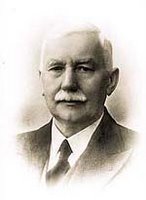A Quote by Plutarch
Poverty is never dishonourable in itself, but only when it is a mark of sloth, intemperance, extravagance, or thoughtlessness. When, on the other hand, it is the handmaid of a sober, industrious, righteous, and brave man, who devotes all his powers to the service of the people, it is the sign of a lofty spirit that harbours no mean thoughts
Related Quotes
Man, even man debased by the neocapitalism and pseudosocialism of our time, is a marvelous being because he sometimes speaks. Language is the mark, the sign, not of his fall but of his original innocence. Through the Word we may regain the lost kingdom and recover powers we possessed in the far-distant past.
The poet presents the imagination with images from life and human characters and situations, sets them all in motion and leaves itto the beholder to let these images take his thoughts as far as his mental powers will permit. This is why he is able to engage men of the most differing capabilities, indeed fools and sages together. The philosopher, on the other hand, presents not life itself but the finished thoughts which he has abstracted from it and then demands that the reader should think precisely as, and precisely as far as, he himself thinks. That is why his public is so small.
There are no brave men and cowardly men in the world, my son. There are only brave men. To be born, to live, to die—that takes courage enough in itself, and more than enough. We are all brave men and we are all afraid, and what the world calls a brave man, he too is brave and afraid like the all rest of us. Only he is brave for five minutes longer.
Many people theorize poverty, but so many elements of poverty, individually, for most people who theorize about poverty would be really difficult to even comprehend the individual things. Just take homelessness. If you are homeless, what does it mean not to have a post box where people can contact you; what does it mean not knowing where you're going to sleep at the end of the day; what does it mean not having a place where you can store what little you might possess. So dealing with homelessness in itself is a huge thing for most people who are commentators [on] or benefactors to poverty.
Only few know what righteousness is. It is righteous to suffer for your own foolishness. When you sin, it is righteous to bear the consequences of your sin without complaining. Saying what you mean and what is on your heart when you deal with other people, that is righteous. One who hungers and thirsts for righteousness will be filled-and being filled with righteousness is something very great.





































